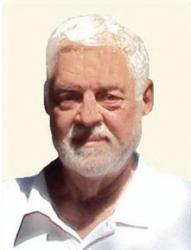I am writing this on Memorial Day, the holiday when we remember the soldiers who died defending our nation. It is also a time to remember those who survived, but were wounded or disabled in service to their country.
This year, Memorial Day has been tarnished by a growing scandal over the medical care our wounded warriors are receiving — or, more to the point, are not receiving — from the Veterans Administration.
This issue is especially important to me because I am a “disabled” veteran myself. I don’t like that term, because I think of myself as impaired, but not disabled. I walk with a slight limp, have trouble standing in one place or sitting for very long, and have pain every day. But I consider myself extremely fortunate: The G.I. bill paid for my college education and, because of my injuries, it was extended, so I could obtain my Ph.D. This education allowed me to have a productive and satisfying career, raise six children, and lead a relatively normal life.
I spent nearly a year in hospitals recovering from my injuries, most of it at Letterman Army Hospital in San Francisco. It was the mid-70s, and the war in Vietnam was winding down. Letterman was an excellent hospital with a top-notch staff. I was in the orthopedic ward, but my memories of it are fuzzy, because most of the time I was spaced-out on pain medication. I don’t recall the names of any of the staff or other patients. They came and went.
Initially, I was confined to a bed, so the days were long and filled with watching TV shows the other patients wanted to watch. When I was able to use a wheel chair, we raced them in the hallway at night, and I learned to do wheelies; and when I finally was able to walk with crutches, we would sneak out at night and go to a little bar across the street and drink beer. I don’t recall any of these impaired vets feeling sorry for themselves or being bitter about their condition. Mostly, we were happy to be alive, focused on overcoming our challenges, and looked forward to resuming our lives.
I received excellent care at Letterman. It was an Army hospital; the patients were still on active duty, and the doctors and staff were all military personnel. The V.A. hospital system is different; it is for those who have been discharged from the military. It is a massive bureaucracy that operates 171 medical centers and hundreds of clinics, staffed and run by members of the American Federation of Government Employees and the Service Employees International Union.
The V.A. health system faces a daunting challenge: Medical technology has made modern warfare less lethal, which keeps the combat deaths down, but it also increases the number of wounded soldiers, as many who once would have died on the battlefield are now kept alive.
Moreover, afflictions such as Post Traumatic Stress Syndrome are now recognized and being treated, and veterans, along with the rest of the population, are living longer. All this translates into a rapidly growing demand for health services by veterans.
The problems in the V.A. health system are not caused by a lack of funding. Its budget has doubled in the last five years, and is now more than $150 billion. But, unlike the private sector, where companies grow larger by being efficient, government bureaucracies tend to become less efficient as they grow larger, and more prone to operate for the benefit of their employees rather than those they are intended to serve.
The current scandal surrounding the V.A. health system came about when hospital administrators were told they could receive bonuses if they reduced the time veterans have to wait to receive medical care at their facilities. How did they respond? Not by looking for ways to operate more efficiently, but by creating phony waiting lists so they could collect their bonuses.
Some members of Congress have called for veterans on waiting lists to be given vouchers to pay for private medical care, but the unions representing V.A. employees have objected, advocating instead for more money to hire more V.A. caregivers.
“Until Congress gives the V.A. the resources to hire enough frontline clinicians to meet demand, our veterans will continue to face long waits,” J. David Cox, Sr., president of the American Federation of Government Employees, recently wrote in the Huffington Post. “And to be clear, sending veterans to expensive health care providers outside the V.A. system on a massive scale will not fix the underlying resource deficiencies plaguing our veterans medical centers.”
I am entitled to 100-percent free medical care from the V.A., but the only care I ever received was back in 1978, when I was in graduate school; I had my gallbladder removed at a V.A. hospital. It was a hassle, and it took the intervention of a congressman to get the V.A. to agree with my private doctors that it was a service-connected injury.
Presently, I need to have my right hip replaced, also a service connected injury. Every private physician I have spoken with has cautioned me not to have it done at a V.A. facility. I was told the V.A. would approve an operation at a private hospital if there were no V.A. facility nearby, so I made an appointment at the V.A. hospital in Pineville to which I am assigned.
I got up a 5 am, gathered my medical records, and made the two-and-a-half hour trip to Pineville. I then sat in waiting rooms the entire day. At one point they sent me to someone who insisted I sign up for a web-based health maintenance program, even though I told them I had excellent health coverage from my employer, McNeese State University, and had no need for it (they clearly wanted to pad the number of people they were “serving”).
When I finally got to see a doctor, I was told that none of my X-rays, tests or documents from private doctors were valid. Before I could get approval for an operation at a non-V.A. hospital, everything would have to be done by V.A. staff, and this would require a series of appointments at a V.A. hospital. So I left, and never went back.
I could save some money if I had access to the V.A. prescription drug benefits, but there is no V.A. clinic in Lake Charles, and V.A. will only provide generic drugs from their list of approved drugs, in spite of what a private physician might prescribe. So, in the last 40 years, I have not received a dime of healthcare benefits from the V.A. In fact, by my accounting, I am minus one day of my life spent in waiting rooms in Pineville.
I’m fortunate, because I have good private healthcare coverage, so it’s not worth it to me to hassle with the VA bureaucracy. But many veterans have no affordable alternative. They need medical care; they are entitled to V.A. medical care; but they are not getting it through the V.A. hospital system.
The Veterans Administration does much more than operate hospitals, and many of these functions it does reasonably well. But running hospitals is not one of them. No one is calling for the V.A. to be abolished, just that it stops trying to run a soviet-style healthcare system and pretending that it is serving our veterans.














Comments are closed.